About Ernst
As a portrait and documentary photographer, Ernst Coppejans uses his art to address discrimination, exclusion, and prejudice. His work, infused with personal resonance, showcases the resilience and diversity of marginalized communities. Through authentic and vibrant portraits, Ernst fosters empathetic conversations and inspires positive change.











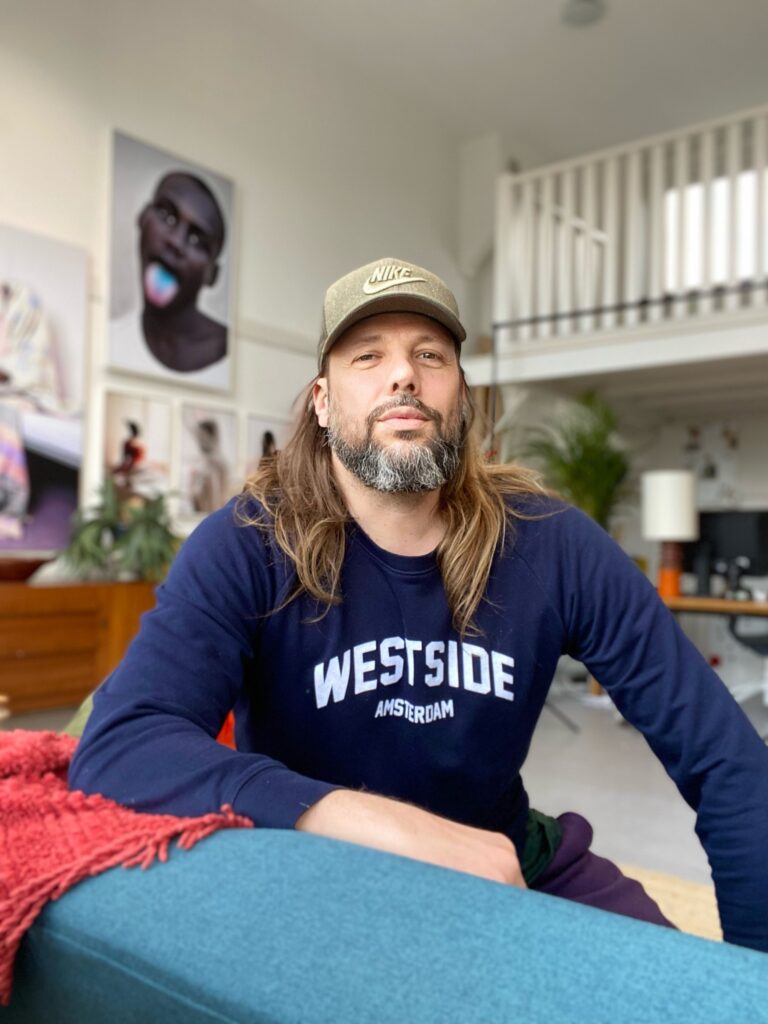

Antique Pink
“Thanks to the emancipation struggle of the generations before us, LGBTQIA+ people in the Netherlands are – almost – equal to everyone else before the law. But that acquired freedom is fragile. This progress will not automatically endure. There is still discrimination and violence against LGBTQIA+ people. Even in 2024, not everyone accepts that love, gender and sex are fluid. I think it is important – while we still can – to reflect on the rich life experiences of the generations before us.
I wanted to capture and share those experiences. How did LGBTQIA+ individuals discover who they were and who they loved in an often ignorant and hostile society? What courage did it take for them to come out and fight for what is just? It was an interesting journey to learn more about a very diverse group of people over seventy. Every encounter was enriching. So many beautiful, moving, happy, inspiring, stunning, crushing, sad, powerful, and heart-breaking stories. Making this series has made me even more aware as a gay man, of the strong and courageous shoulders we stand on.” A monumental traveling multimedia exhibition, featuring the 30 portraits and stories, has been made in collaboration with Stichting Open Mind.











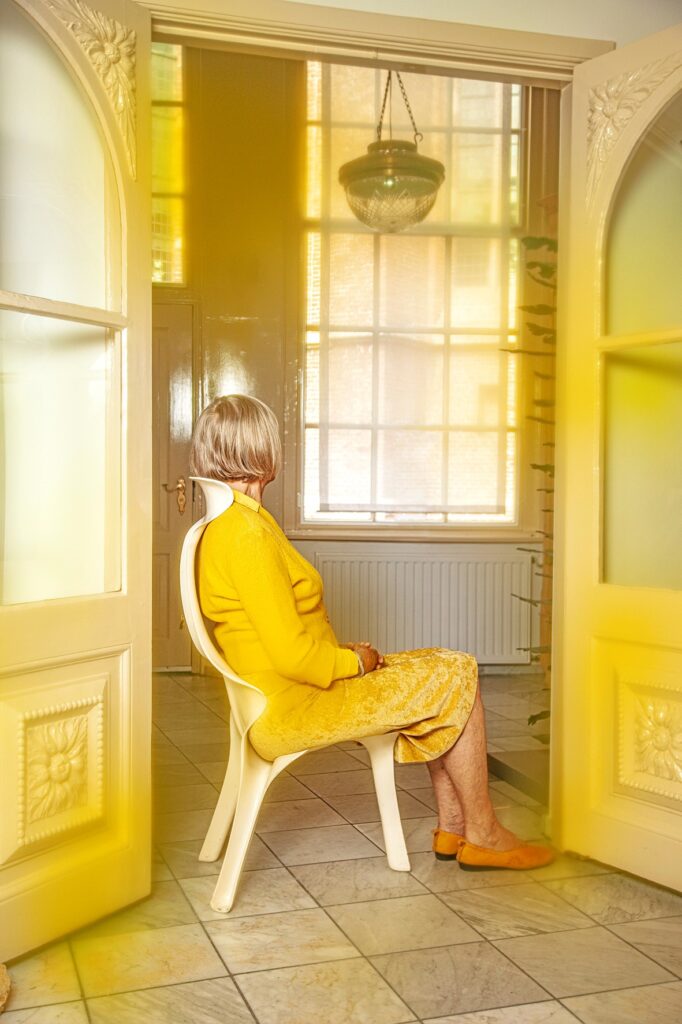

KATOO
80 years old – 1941, born in South Holland, worked as an art teacher / is an artist
‘The word intersex didn’t exist then’
‘My sister hadn’t started menstruating at 16. She went to the doctor with my mother, and they took me along. We were told we could not have children.’











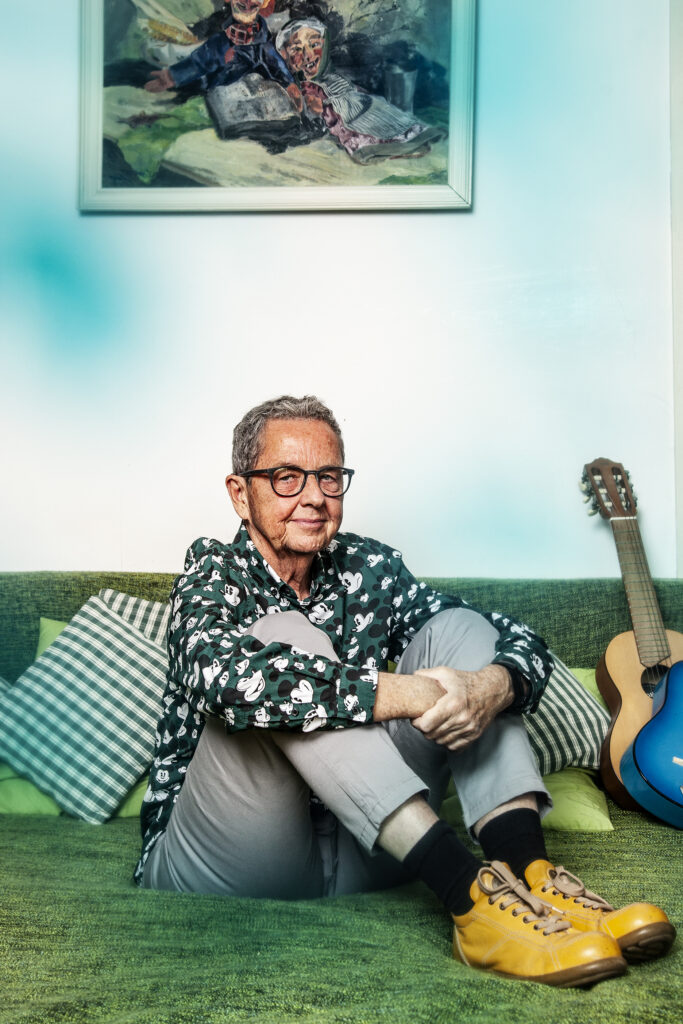






MEES
76 years old – 1945 Nunspeet / studied psychology / worked as a technician and consultant
‘I’ve come out twice. First as a lesbian and years later as a trans.’
‘The feeling that I was a boy wasn’t always at the forefront, but it’s never gone away either. I hated that in the 1960s, I couldn’t go to college or the AVSV student association in pants. Later, when I worked at an energy company and there was talk that we had to wear a uniform, I went to my supervisor and said I was transsexual and didn’t want to wear a skirt.’











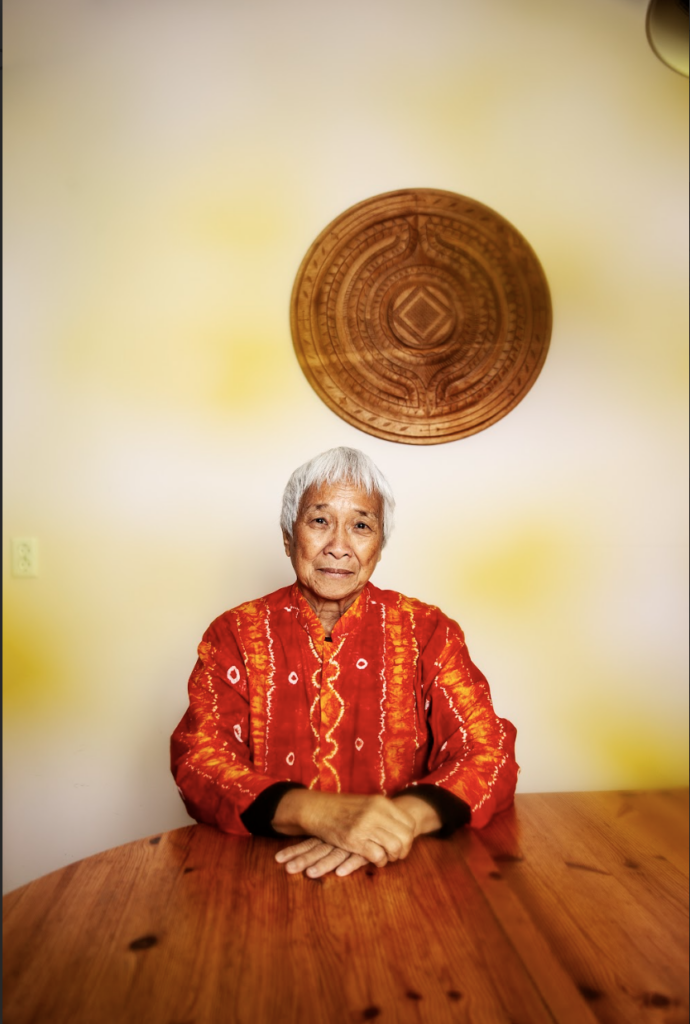

Twie Tjoa
77 years old – 1943 Surabaya, Indonesia / worked as a senior civil servant and policy maker, still works as a freelancer
‘The old and young generations should hold on each to other and decide: how are we going to proceed’











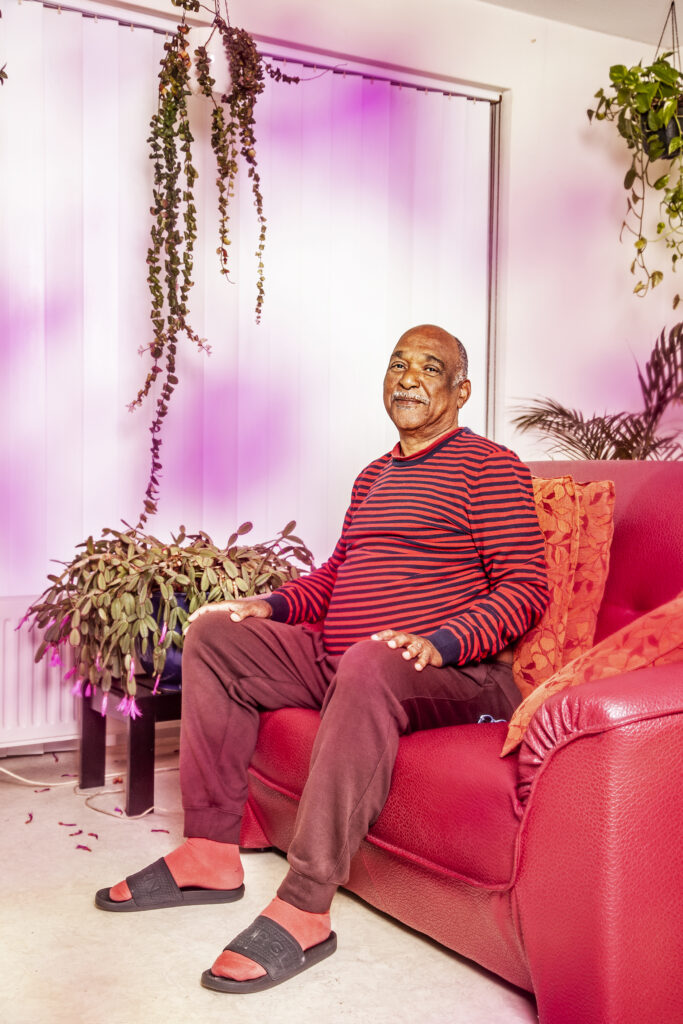






Vivian
71 years old – 1949 Paramaribo Suriname / nurse and therapist
‘Casa Maria was a local pub where we blacks were allowed to enter. It turned into our living room.’
‘I’ve always loved boys. As a child I didn’t find that difficult. It came naturally. Everyone at home knew it too, I didn’t secretly talk about it. I do have a son. When I was seventeen, I had an encounter with a lady and she fell pregnant. My son is sweet and he takes good care of me. I also have four grandchildren.’













Gloria
71 years old – 1950 Paramaribo, Suriname / scientist
‘My drive and desire for autonomy stem from being a lesbian’
‘I didn’t always know. First, I had relationships with men. I was with a woman for the first time when I was 28. That was a revelation. I’m not, so to speak, a diehard dyke. Later in my life I also had a relationship with a man. For me, sexuality is not like: that’s just how you are. I can actually go either way. But I find it more fun and more exciting to be with a woman. It feels more intimate and it empowers me.’











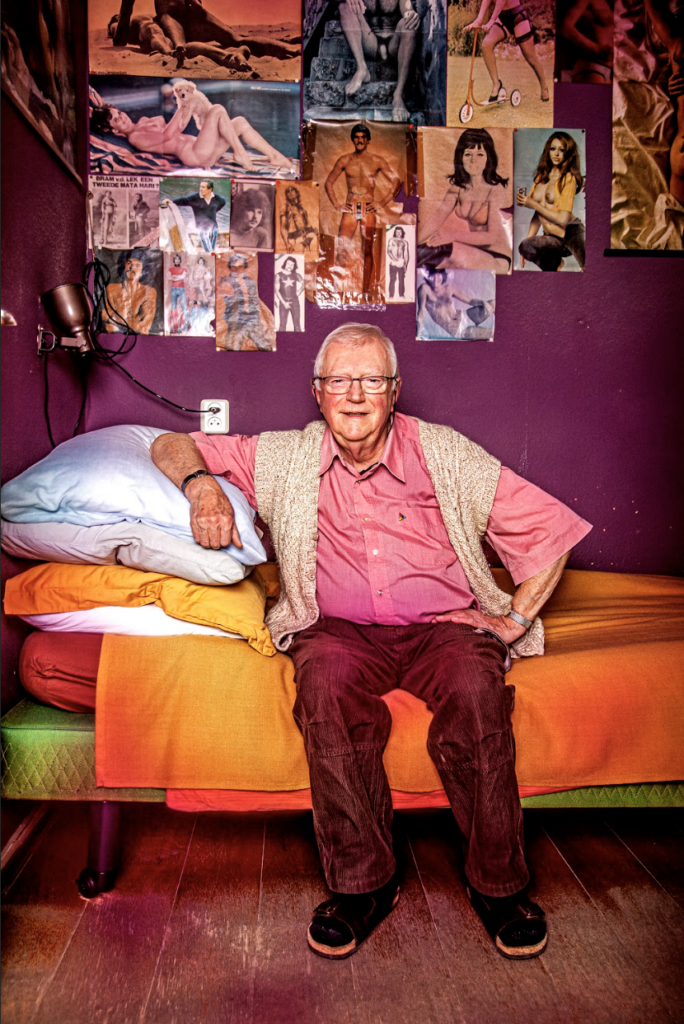






Teo
78 years old – 1943 Vught / worked in nursing
‘I am attracted to bisexual married men’
‘I’ve been gay from birth. I can’t provide a start date or circumstance. I’ve never had a coming out. When I was thirteen, I had my first ejaculation near my parental home in Hengelo. Together with the boys from the neighbourhood. It was a wonderful moment. I didn’t even know that that existed. No one had ever educated me. I also didn’t have brothers or sisters. I had to discover everything myself.’











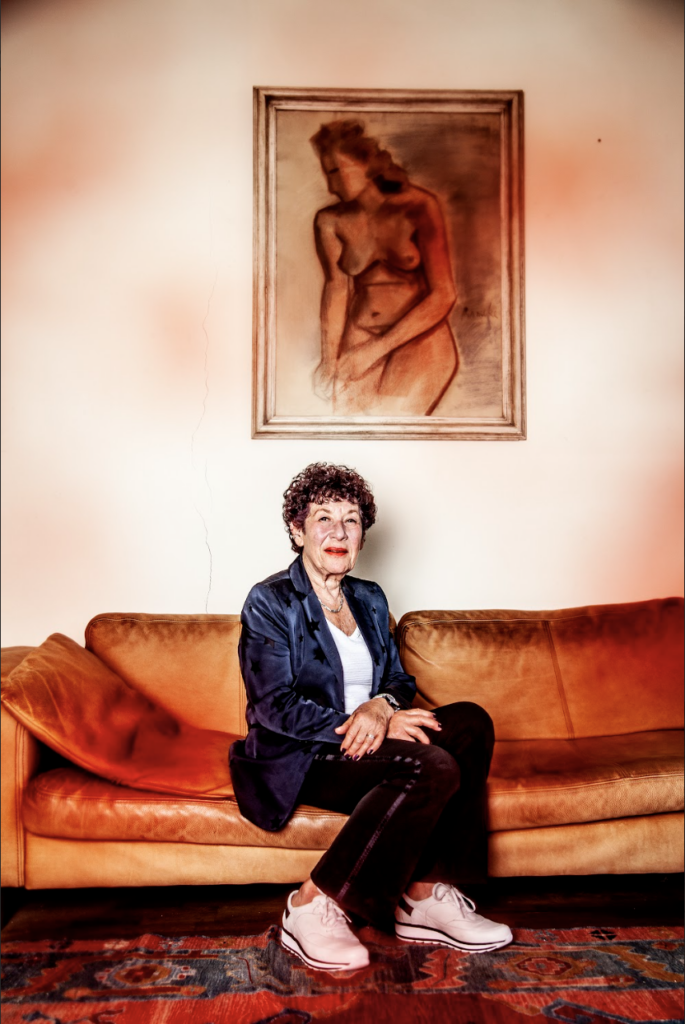

Marjan Sax
73 years old – 1947 Amsterdam / political scientist / founder Mama Cash
‘I belonged to the group that wanted to turn sexuality into something fun’
‘I am from a family of Jewish refugees. My parents died when I was young, and I inherited their wealth. When I studied political science, I became active in the student movement and from 1969 in the feminist movement. Then I rganize that I wanted to use my money for the women’s cause.’











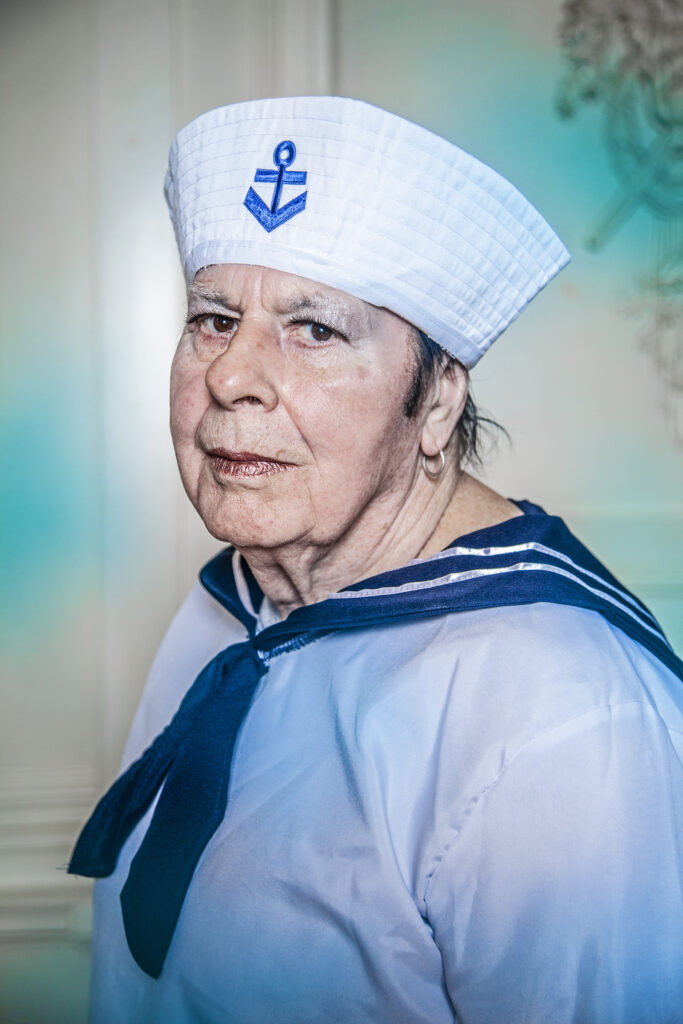






Martin
74 years old – 1946 Purmerend / ballet dancer and artist
‘My boyfriend was straight away allowed to eat at home’











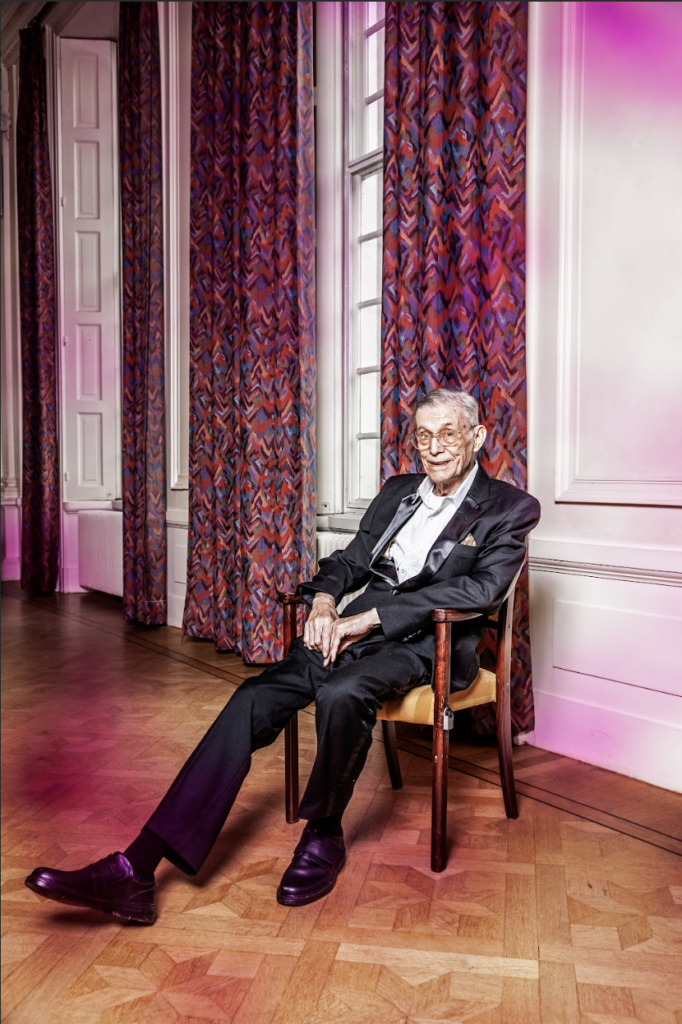

Ferry
88 years old – 1931 Kota Raja, Indonesia / lawyer
‘Just say it, it’s a big relief’

